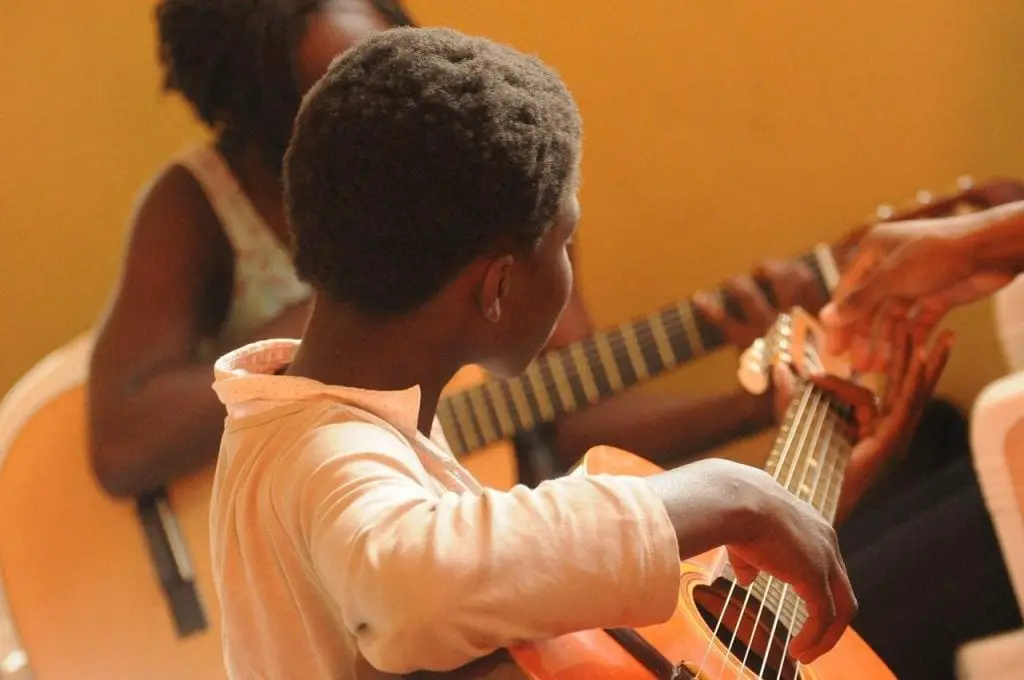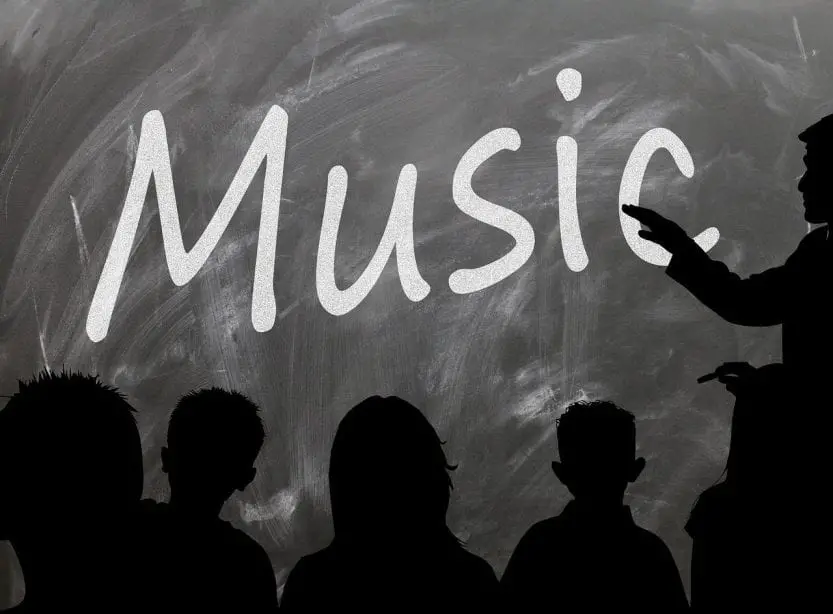Primary school is where the formative years of a child’s education are spent. This is where students pick up the basics of learning. If primary education is strong, then it helps a student for the rest of his/her life. Schools try out innovative teaching methodologies and techniques to enhance learning at the primary level. One of the most interesting and effective ways of doing this is through music. Primary school kids can benefit the most when music is used as a part of education. It can be either using music to teach other objects or teaching music itself.
Using music in the classroom
Music can be used in the classroom as a teaching technique. This makes the classroom session different and more interesting. Music interests most children who love songs and the rhythm involved. When teachers use music to teach different subjects, it makes students excited. Their interest in and involvement in the class session increases. This can help in better learning, which is key at the primary level.
The use of nursery rhymes with music is a proven way of teaching. A similar technique can be used by using music and songs to teach difficult concepts. Songs about topics in history or about a topic from science can help students remember the concept. More importantly, the students develop an interest to learn about the concept thanks to the use of music. This is a great technique to use in the classroom to make learning more interesting.
Teachers can even create their own songs. They don’t need to know how to write a song, nor do they need to have learned music. They should be able to incorporate musical elements in daily lessons to create more interest. Even simple musical elements like whistling or rhythmic clapping can be integrated into a lesson to generate interest. Music can be used with mnemonics to make remembering difficult concepts easy. There are different ways in which music can be used in the classroom. The end result would be to make the class session interesting and enjoyable.
Teaching music in schools
Students of primary schools can learn music along with the other subjects of study. Music education can be an important addition to the primary school curriculum. Whatever is the form of music learned, music education provides many advantages. There have been many studies that have examined the impact of music education on school children. All these studies have shown the importance of music in the developmental stage.
Students at a young age can be influenced by music. Learning music can impact the brain and its working. The brain processes information more effectively as a result of music learning. This makes the process of learning more effectively. The impact of learning music will be seen even on other learning experiences This enriches education providing benefits for students.
The many benefits of music education at the primary level are listed in the following sections.
Music acts as the building block for their education
Learning music has many advantages for a primary school student. It can help create a positive attitude towards education for the child. Their curiosity to learn increases thanks to the effect of learning music. This learning behavior will continue while learning other subjects also. All students start from the same level, and music helps bring students together to learn. It motivates children with disabilities to learn effectively.
Learning music is fun
Children have a perception that learning is boring and hard work. When music is brought into the picture, it changes their entire approach to learning. Music is fun and enjoyable. Children would love to learn music and eagerly await the music classes. They start looking at learning from a different perspective. They develop a higher interest in going to school and learning. Achievers in music will also achieve in other subjects.
Music improves learning abilities
Studies showed that those students who learned music had greater advantages as compared to students who didn’t learn music. The studies concluded that there was a strong relationship between student achievements and learning music. The studies showed that music helps in developing literacy skills, listening skills, and numeracy skills.

Music improves memory
The ability to learn and remember is important at the primary school level. Memorizing lessons are important at school. Music can help improve the memory skills of children. It is a known fact that children are able to memorize musical notes and songs very quickly. The same skills would help them in other subjects. This skill will help them in their entire career.
Students strive to improve themselves
Children would treat learning music as a challenge, and they gladly accept the challenge. Most children put in additional effort to learn music and to achieve their learning objective. The ability to improve one’s skills is learned through music. This ability will help them in their studies, and they improve their learning of various objects.
It helps in the emotional development of children
Music has a positive effect on the brain. Studies showed better neural processing in students who learned music. This helps in the emotional development of the student who learns music. This emotional development helps them to develop empathy with others. They become understanding of other students. This helps them improve their self-esteem and they can even manage anxiety better.
It improves their IQ
Since music stimulates brain development in the child, it has a positive impact on their IQ (Intelligence quotient). This helps them be more intelligent. Studies have shown that students who engaged in music had a higher IQ as compared to other students. This proves that music impacts learning and enhances language and other skills. This increase in IQ has an impact on their education.
It improves their academic performance
When learning and development improve, it goes without saying that the overall academic performance of the student improves. With an improved ability to learn and improved memory skills, the child’s academic performance would improve. The impact of learning music affects the student’s performance in other subjects. Students who learn music do better than others. Studies have shown that students who have learned music have better SAT scores. A study showed that a student with music courses can score 63 points higher on verbal ability scores and 44 points higher on math scores.
Music helps children relax and calm down
Music has a soothing and calming effect. Learning music helps children to relax. This happens naturally without the need to put in any extra effort. This can be very helpful in allowing children to calm down. Students who get stressed at school due to various situations or get tensed during exams will be more relaxed thanks to their exposure to music. It helps calm them down and such students would be less aggressive. This avoids the unhealthy trend of violence in schools.
It helps them bond well with others
Students who learn music bond well with others. In most cases, music students learn to co-ordinate with classmates while learning. This improves their teamwork. They understand that each one of them needs to contribute to ensure a great performance. This helps them work with other children, not just in the music classes but also for other subjects. They work well with others for projects. This skill will help them in their future career.
Students learn to be disciplined
Students who learn music follow the lead of the conductor. They start and stop playing music watching the conductor’s lead. They understand the need to follow instructions. This helps them to be more disciplined. Their behavior improves, and they willingly follow rules. This has a strong impact on school culture and is beneficial. The discipline they learn at this stage will be extremely helpful during their later life. It helps them manage their studies and their work in a better way.
It develops their creative skills
Music is a creative subject. Students don’t just learn a few lessons but learn to create music on their own. As their learning progresses, they start to create their own music. When they do this at a young age, it hones their creative skills. This becomes valuable for the future. They can use these skills in learning other subjects. Doing projects and other activities become easier since students are able to think creatively. This is a very positive impact of learning music.
Music helps to break down barriers
Music is for everyone. There are no barriers to learning music at the primary school level. Even children with disabilities can learn music. This helps them gain confidence and this improves their performance. Children from disadvantaged backgrounds tend to be diffident at school. Learning music helps boost their confidence. This puts them on par with their peers. It helps them overcome disadvantages and learn better.
The multiple benefits of learning music listed in this article explain why students need to learn music at the primary level. Their engagement with music can lead to their all-round development.



